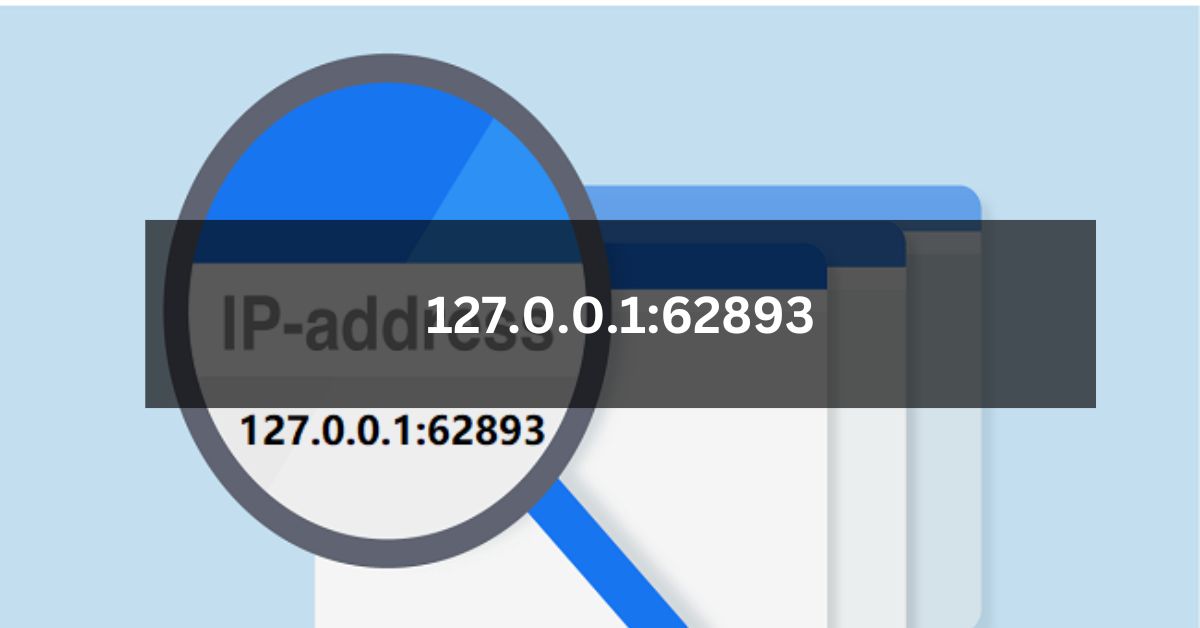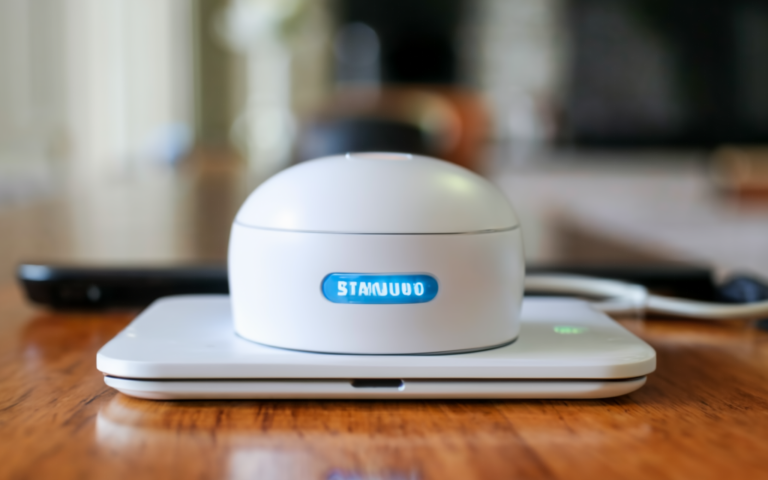Understanding 127.0.0.1:62893: The Local Connection You Never Knew You Needed
Have you ever come across the mysterious string of numbers “127.0.0.1:62893” and wondered what it means? You’re not alone! This article will break down everything you need to know about this important but often misunderstood concept in computer networking. Whether you’re a curious internet user or a budding programmer, we’ll explore why 127.0.0.1:62893 matters and how it affects your daily online life.
What is 127.0.0.1:62893?
Let’s start with the basics. 127.0.0.1:62893 is actually two pieces of information combined:
- 127.0.0.1 – This is a special IP address
- 62893 – This is a port number
Together, they form what’s called a “socket address.” But don’t worry if that sounds too technical – we’ll explain everything in simple terms!
Breaking Down 127.0.0.1
The number 127.0.0.1 is known as the “localhost” IP address. Think of it as your computer’s home address on the internet. When a program on your computer wants to talk to itself, it uses this address.
Some key points about 127.0.0.1:
- It always refers to the current device you’re using
- It’s like saying “me” or “myself” in computer language
- It’s used for testing and running programs locally
Understanding the :62893 Part
The number after the colon (62893 in this case) is called a port number. Ports are like different doors into your computer. Each door (port) can be used by a different program or service.
Important things to know about port numbers:
- They range from 0 to 65535
- Some ports are reserved for specific uses (like 80 for web browsing)
- 62893 is a high-numbered port, often used for temporary connections
Why Does 127.0.0.1:62893 Matter?
You might be wondering why you should care about this technical-sounding address. Here are some reasons why 127.0.0.1:62893 is important:
- Local Development: Programmers use addresses like this to test websites and apps on their own computers before sharing them with the world.
- Network Troubleshooting: When something’s not working right on your computer or network, checking localhost connections can help find the problem.
- Security: Understanding localhost helps you recognize safe, local connections versus potentially dangerous external ones.
- Learning Networking: Grasping the concept of 127.0.0.1:62893 is a great first step in understanding how computers communicate.
How 127.0.0.1:62893 Works in Everyday Life
Let’s look at some common scenarios where you might encounter 127.0.0.1:62893 or similar addresses:
Scenario 1: Web Development
Imagine you’re learning to build websites. You create a simple page and want to see how it looks. Your development tool might use an address like 127.0.0.1:62893 to show you the page right on your computer, without needing to put it on the internet.
Scenario 2: Running a Game Server
Many multiplayer games allow you to host your own server. When setting this up, you might see instructions to connect to 127.0.0.1 followed by a specific port. This lets you test the server on your own machine before inviting friends.
Scenario 3: Database Management
If you’re working with databases, you’ll often connect to them using localhost (127.0.0.1) and a specific port. This ensures you’re working with data on your own computer, keeping it safe and private.
Common Misconceptions About 127.0.0.1:62893
Let’s clear up some confusion that people often have about this topic:
- Myth: 127.0.0.1:62893 is a virus or malware. Truth: It’s a normal, safe address used by your computer. Seeing it doesn’t mean you’re infected!
- Myth: You can use 127.0.0.1:62893 to connect to other computers. Truth: This address only connects to your own device, never to others.
- Myth: The numbers in 127.0.0.1:62893 are random. Truth: Each part has a specific meaning and purpose in networking.
The History Behind 127.0.0.1
To truly appreciate 127.0.0.1:62893, let’s take a quick journey through its history:
- 1981: The Internet Protocol (IP) is defined, including the concept of localhost.
- 1983: 127.0.0.1 is officially designated as the localhost address.
- 1990s: As the internet grows, localhost becomes crucial for developers testing web applications.
- Today: 127.0.0.1 remains a fundamental concept in networking and software development.
How 127.0.0.1:62893 Relates to Your Internet Connection
You might be wondering how 127.0.0.1:62893 fits into your broader internet experience. Here’s a simple breakdown:
- Your Home Network: When you connect to Wi-Fi at home, your router gives your device a local IP address (like 192.168.1.5).
- Localhost (127.0.0.1): This is always available, even if you’re not connected to any network.
- Public IP Address: This is what the rest of the internet sees when you go online.
- Ports (like :62893): These are used by all types of IP addresses to manage different connections.
Understanding this hierarchy helps you see where 127.0.0.1:62893 fits in the bigger picture of your online world.
Practical Uses for 127.0.0.1:62893
Now that we understand what 127.0.0.1:62893 is, let’s explore some practical ways you might use it:
- Website Testing: Developers use localhost to preview websites before publishing them.
- App Development: Mobile app creators test their apps on localhost before releasing them to app stores.
- Network Diagnostics: IT professionals use localhost to check if a computer’s network stack is functioning correctly.
- Learning Programming: Many coding tutorials use localhost to teach concepts like server-client communication.
- Running Personal Servers: From file sharing to game servers, localhost lets you set up services for personal use.
Security Implications of 127.0.0.1:62893
Understanding 127.0.0.1:62893 can help you stay safer online. Here’s how:
- Recognizing Safe Connections: If you see a program connecting to 127.0.0.1, you know it’s staying within your own computer.
- Avoiding Phishing: Scammers sometimes try to make harmful links look like localhost addresses. Knowing the real thing helps you spot fakes.
- Firewall Configuration: Understanding localhost helps you set up your firewall to allow necessary local connections while blocking external threats.
- Sandboxing: Developers use localhost to run potentially risky code in a safe, isolated environment.
127.0.0.1:62893 in Different Operating Systems
The concept of localhost and port numbers is universal, but how you interact with them can vary between operating systems:
Windows
- Open Command Prompt and type
ping 127.0.0.1to test localhost - Use PowerShell for more advanced networking tasks
macOS and Linux
- Open Terminal and use commands like
netstatto see active connections - The
/etc/hostsfile manages localhost settings
Mobile Devices (iOS and Android)
- Localhost is still present but less commonly accessed by users
- Developers use localhost for app testing in emulators
Future of 127.0.0.1:62893 and Networking
As technology evolves, what does the future hold for localhost and port numbers?
- IPv6 Adoption: The newer internet protocol includes a different localhost address (::1), but 127.0.0.1 remains supported.
- Container Technology: Tools like Docker make heavy use of localhost for creating isolated development environments.
- Internet of Things (IoT): As more devices connect to networks, understanding local vs. remote connections becomes even more important.
- 5G and Edge Computing: These technologies may change how we think about “local” in networking, but the core concept of localhost will remain relevant.
How to Use 127.0.0.1:62893 in Your Projects
Interested in putting your new knowledge to use? Here are some beginner-friendly project ideas:
- Simple Web Server: Use Python or Node.js to create a basic web server on localhost.
- Chat Application: Build a local chat app that communicates between two browser windows using localhost.
- Database Practice: Set up a local database and connect to it using 127.0.0.1 and a specific port.
- Network Scanner: Create a tool that scans your localhost ports to see which ones are open and active.
Troubleshooting Common 127.0.0.1:62893 Issues
Even localhost can have problems sometimes. Here are some common issues and how to fix them:
- Connection Refused: Make sure the program you’re trying to connect to is actually running.
- Port Already in Use: Try changing to a different port number, or find and close the program using your desired port.
- Firewall Blocking: Check your firewall settings to ensure it’s not preventing localhost connections.
- Incorrect Loopback Configuration: In rare cases, your localhost setup might be misconfigured. Consult your operating system’s network settings.
127.0.0.1:62893 in the Larger Context of IP Addressing
To fully grasp the significance of 127.0.0.1:62893, it’s helpful to understand its place in the broader world of IP addressing:
- Private IP Ranges: Addresses like 192.168.x.x or 10.x.x.x are for local network use, similar to localhost but shared among devices.
- Public IP Addresses: These are unique identifiers for devices on the global internet.
- Special Use Addresses: 127.0.0.1 is part of a range of addresses reserved for special purposes.
- Port Numbers: The :62893 part can be any number from 0-65535, each potentially serving a different purpose.
Understanding these categories helps put 127.0.0.1:62893 into perspective within the larger networking ecosystem.
Frequently Asked Questions About 127.0.0.1:62893
To wrap up our comprehensive guide, let’s address some common questions people have about 127.0.0.1:62893:
- Q: Is 127.0.0.1:62893 the same for everyone? A: The 127.0.0.1 part is the same for everyone, but the port number (62893) can vary.
- Q: Can I change my localhost address? A: While it’s technically possible, it’s not recommended and can cause problems. 127.0.0.1 is a standard that helps everything work smoothly.
- Q: Why do I see 127.0.0.1 in my firewall logs? A: This is normal! It just means programs on your computer are communicating with themselves.
- Q: Is localhost the same as my home Wi-Fi network? A: No, localhost only refers to your individual device, while your home network includes all connected devices.
- Q: Can websites on the internet see my 127.0.0.1 address? A: No, 127.0.0.1 is only visible and meaningful to your own device.
- Q: What’s the difference between 127.0.0.1 and 0.0.0.0? A: 127.0.0.1 always means “this device,” while 0.0.0.0 can mean “any available network interface” in certain contexts.
- Q: Can I use 127.0.0.1:62893 to host a website for others? A: No, you’d need to use your public IP address and configure your router to make a website accessible to others.
- Q: Why do some programs use localhost instead of 127.0.0.1? A: They’re the same thing! “Localhost” is just an easy-to-remember name for 127.0.0.1.
- Q: Is it safe to allow programs to connect to 127.0.0.1? A: Generally yes, as it’s a local connection. However, always be cautious with any program requesting network access.
- Q: Can malware use 127.0.0.1:62893? A: While malware can use localhost connections, seeing 127.0.0.1:62893 doesn’t automatically mean you have malware. It’s a normal address used by many legitimate programs.
Conclusion: The Local Connection That Powers the Internet
In this deep dive into 127.0.0.1:62893, we’ve uncovered the significance of this seemingly cryptic string of numbers and symbols. From its role in web development to its importance in network security, localhost and port numbers are fundamental building blocks of our connected world.
Understanding 127.0.0.1:62893 is more than just a technical exercise. It’s a gateway to grasping how the internet works, how your computer communicates with itself and the outside world, and how developers create the digital experiences we enjoy every day.
Whether you’re troubleshooting a network issue, learning to code, or simply satisfying your curiosity about the inner workings of technology, the concept of localhost will serve you well. It’s a reminder that in the vast, global network we call the internet, sometimes the most important connections are the ones closest to home.
So the next time you see 127.0.0.1:62893 or a similar address, you’ll know you’re looking at a little piece of internet magic that helps make our digital world go round. Keep exploring, keep learning, and remember: in the world of networking, home is where the localhost is!







